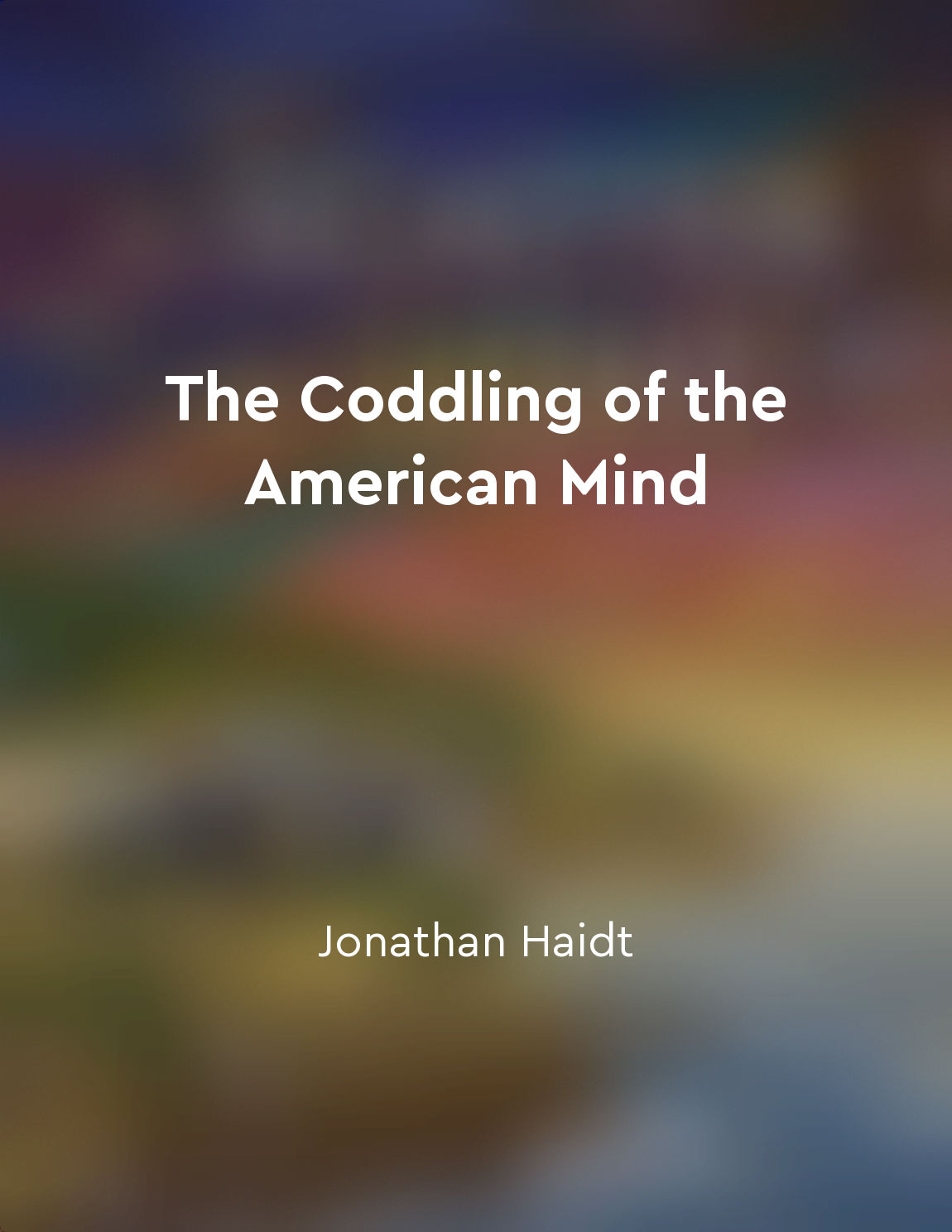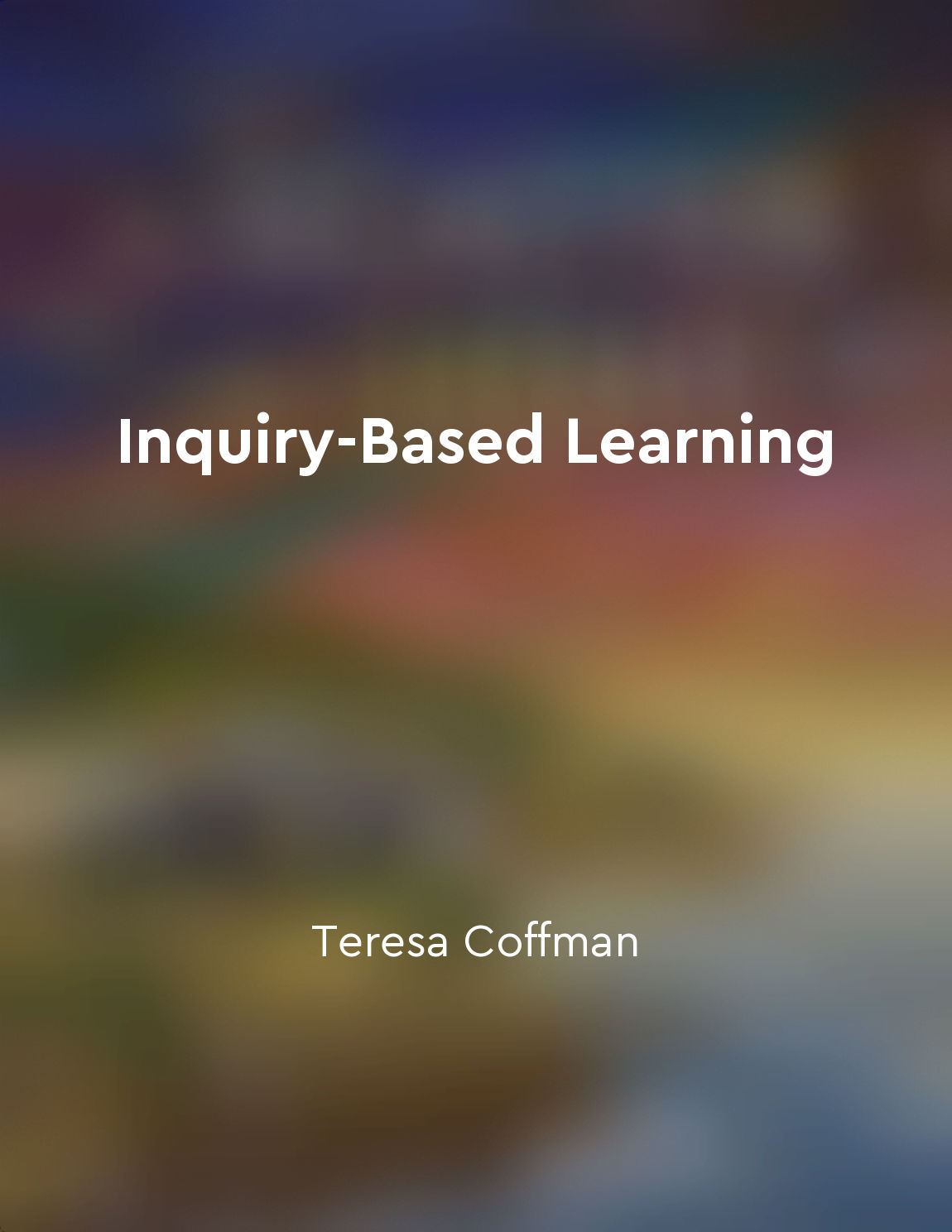Inquirybased learning promotes empathy and understanding from "summary" of Inquiry-Based Learning by Teresa Coffman
Empathy and understanding are essential components of a well-rounded education that prepares students for success in an increasingly interconnected world. Through inquiry-based learning, students are encouraged to explore complex issues from multiple perspectives, fostering a deeper sense of empathy for others. By engaging in open-ended questions and collaborative research projects, students have the opportunity to step outside of their own experiences and consider the viewpoints of others. Inquiry-based learning promotes empathy by challenging students to consider the diverse backgrounds, beliefs, and experiences of their peers and the broader community. By encouraging students to ask questions and seek out different sources of information, inquiry-based learning cultivates a sense of curiosity and a willingness to engage with new ideas. This process of inquiry not only deepens students' understanding of a subject but also helps them develop a greater appreciation for the complexity of the world around them. Moreover, inquiry-based learning encourages students to engage in meaningful dialogue with their peers, teachers, and community members. Through collaborative projects and discussions, students have the opportunity to share their perspectives, listen to others, and work together to find solutions to real-world problems. This process of inquiry not only promotes empathy but also fosters a sense of connectedness and mutual respect among students. By engaging in inquiry-based learning, students learn to approach complex issues with an open mind and a willingness to consider multiple viewpoints. This approach not only promotes empathy for others but also encourages students to think critically about the world around them. By engaging with diverse perspectives and challenging their own assumptions, students develop a deeper understanding of the complexities of the world and their place within it.- Inquiry-based learning promotes empathy and understanding by encouraging students to explore complex issues, consider diverse perspectives, engage in meaningful dialogue, and think critically about the world around them. Through this process of inquiry, students develop a deeper appreciation for the richness and diversity of human experience, preparing them to be thoughtful, engaged, and empathetic members of society.
Similar Posts

Emotional reasoning can cloud judgment
When we allow our emotions to guide our thinking, we risk making decisions that are not based on logic or evidence. This phenom...
This is leading to increased partisanship and gridlock in government
The growing trend of people clustering together with like-minded individuals has profound implications for our political system...
Key points highlighted for emphasis
The key points highlighted for emphasis serve as important markers in the text. They are designed to draw the reader's attentio...

Use mnemonic devices to aid in memory recall
To improve your memory recall, it can be helpful to utilize mnemonic devices. Mnemonic devices are memory aids that can make it...
Liberation requires transformation of society
Liberation is not simply the act of freeing individuals from oppression. It goes beyond that - it demands a complete transforma...
Celebrate the diversity of voices in your classroom
Embracing the diverse voices present in your classroom is essential to fostering a dynamic and inclusive learning environment. ...
Reflection is an important component of the learning process
Reflection is an essential part of the learning process. When students take the time to think about what they have learned, the...
Higherorder thinking questions for critical thinking
Higher-order thinking questions are designed to challenge students to think critically and deeply about a particular topic. The...
PBL can be implemented in various disciplines
Problem-based learning (PBL) is a versatile educational approach that can be effectively utilized across a wide range of academ...
Students are unique individuals with different talents
In every classroom, there is a diverse group of students with their own unique set of talents and abilities. Some students exce...


